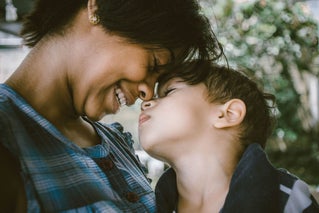
World Animal Protection
The fight to end the global wildlife trade.
Like almost all nonprofit organizations, World Animal Protection has dramatically shifted focus over the last few months—some of it forced, some of it opportunistic.
Corporate campaigning had been virtually non-existent since March: The restaurants we had been trying to convince to sell higher welfare meat emptied; the airlines we were trying to get to stop shipping exotic animals were grounded; and the tourist venues keeping wild animals captive in the name of entertainment shuttered their doors.
Big problems require big solutions.
What did we do? We pivoted toward campaigning for legislation that would help prevent another crisis. We teamed up with other animal welfare organizations in joint actions to legislators, governors, national and international agency directors suggesting numerous ways to avert future pandemics, from closing wild animal markets—the source of the current outbreak—to providing more plant-based foods in emergency nutrition assistance programs.
And it wasn’t just animal welfare organizations that came together. As the crisis has affected so many different people from all walks of life, we found solidarity with other movements, such as farm workers, who have no choice but to work in sometimes unsanitary conditions at great expense to their health.
Our supporters were also keen to take action. As stay-at-home city and state orders persisted, and some, unfortunately, had to deal with job losses, this presented opportunities for many individuals to have the time to devote to other activities, including expressing desires to create change. Our online appeal for people to contact their legislators in support of the Global Wildlife Health and Pandemic Prevention Act had an unprecedented 77% conversion rate—extremely high under any circumstance.
The pandemic also gave us time to think carefully about how we got into this situation and where we go from here. Epidemiologists believe the source of the novel (new) coronavirus (COVID-19) was a wild animal sold at a wildlife market in Wuhan, China. World Animal Protection has been fighting against the trade in wild animals for years. In 2018 we chronicled the poaching of pangolins—wild animals found in Asia and Sub-Saharan Africa—for their scales in our report “Suffering at Scale.”
We’ve known for years that wild animals are vectors of zoonotic disease—diseases which pass from animals to humans—but lawmakers have taken little action. Every day, thousands of wild animals are poached or farmed and sold into the global multi-billion-dollar legal, commercial trade. The horrific conditions they endure cause much suffering for every single animal involved and are a threat for future pandemics.
Millions of live animals enter the U.S. each year without disease screening, and every year the Centers for Disease Control and Prevention reports outbreaks of disease spread between animals and people. It’s not a case of if we’ll face another disease crisis, it’s a case of when.
Our organization has called on G20 countries—the group of the 20 largest and most influential economies—to end the global inter-country trade in wild animals and wild animal products, once and for all. During the 2008 financial crisis, the G20 showed its potential as a worldwide leadership body, agreeing to global solutions to stabilize the world’s economies. It could play a similar role in the coming months to bring about a collective response and comprehensive answers to the COVID-19 pandemic and to prevent similar future crises occurring.
If you would like to get more involved with World Animal Protection, please visit our website, sign up for our newsletter or even make a donation to support our work.
Written by Ben Williamson, US Director of Programs at World Animal Protection.
Ben oversees World Animal Protections’ five campaign areas: Wildlife. Not Entertainers, Wildlife. Not Pets, Raise Pigs Right, Change for Chickens, and Meat Reduction for the US office. With nearly a decade of experience working within animal protection in both the United States and England, his areas of expertise include animals in entertainment, exotic pets, factory farming, vegetarian/vegan issues, cruelty to animals, and humane education.


